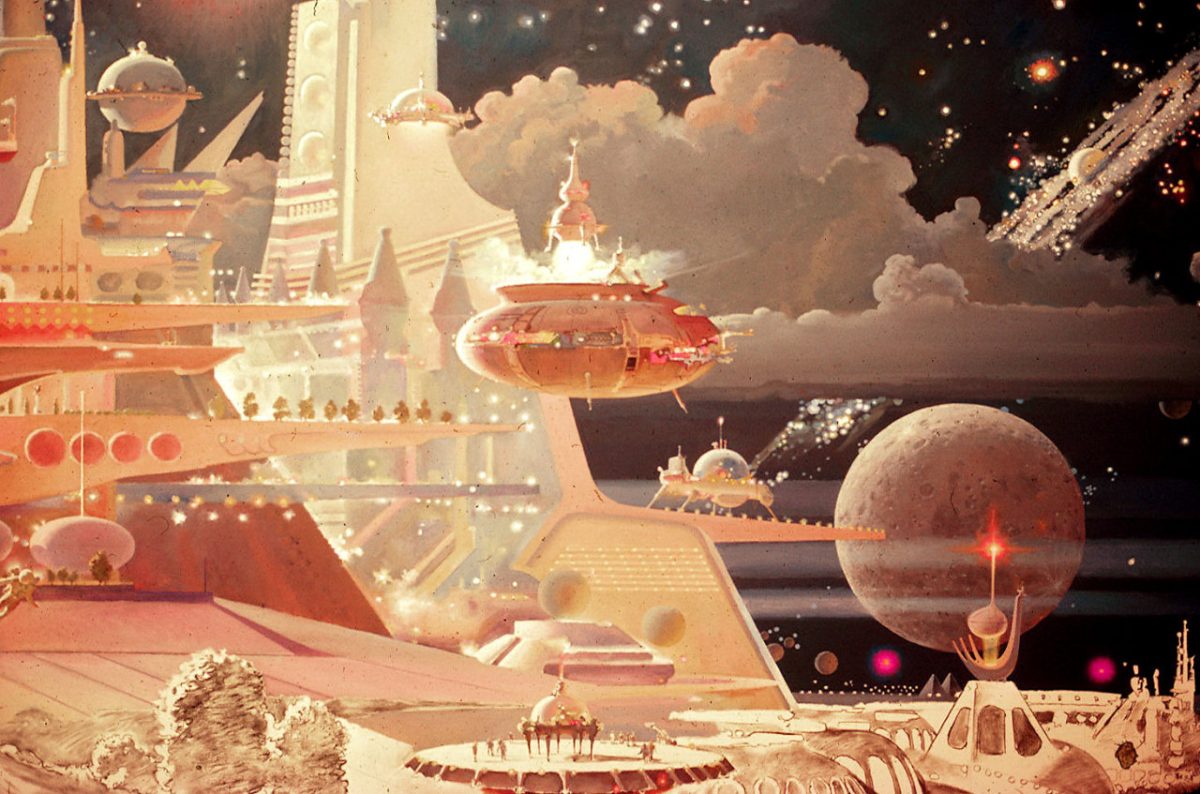With the dawn of a new year, I always like to do a quick search for the “best books” of the past year and the most anticipated book releases of the new year. Most major publications have their own carefully curated lists, some longer than others, with many overlapping titles in literary fiction and memoirs. As much as I love numerous books from these genres, it always puzzles me how rarely speculative fiction books make it onto these lists. At the very least, lists will include new releases by renowned speculative fiction authors, but most, if not all, of their featured author debuts fall under literary fiction. The general consensus of our reading community is that realism is peak fiction, even though realism in literature is relatively young. In the United States, we praise and advertise literary fiction to an overwhelming degree, handing out all of our major awards to these stories and the occasional genre fiction if it passes for good literature. It is almost as if we’ve forgotten that the stories we’ve been telling and passing down for hundreds of years, all over the world, are speculative!
First of all, what is the difference between literary and speculative? Literary fiction, or lit fic, describes stories that are deliberately artistic in writing, style, and theme. They often focus on the human condition, universal struggles, and deeper meanings found in mundane moments. On the flip side, speculative fiction encompasses stories that take place in an alternate reality, and the degree to which this reality deviates from our own is limited only by the imagination. Anything from science fiction to fantasy to magical realism to horror falls under the speculative umbrella. Much of literary, contemporary, and historical fiction never strays too far from real life. In this way, lit fic is typically more character-driven, while speculative fiction can be a mix of character, plot, and world elements.
Speculative fiction is self-defining: the author speculates and shares thoughts, theories, and worlds for readers to muse over for themselves. Prominent titles like “1984,” “Brave New World,” and “The Handmaid’s Tale” provoked readers during the already tumultuous times they were written. Good speculative fiction, like lit fic, can spark wondrous questions about human nature and societal norms. However, while lit fic often boxes readers into a singular perspective on conflict, speculative fiction encourages us to expand our views by probing our individual imaginations and values. In a fictitious world designed to contrast our own, what is the meaning of life, the universe, and everything? What kind of person would you be, or what role would you fill? The dystopian novel “Parable of the Sower” by Octavia. E. Butler echoes these kinds of questions. We follow Lauren Olamina, a young Black girl wise beyond her years and gifted with hyperempathy, an ability to physically feel the joy and pain of others. As she watches her family collapse and her community crumble to the outside anarchy, she forms a new religion named Earthseed that helps her cope with and explain these devastating experiences. Butler writes striking, philosophical dialogue between her characters that burrows deep into readers’ minds and leaves them thinking about Lauren’s story long after it closes.
At the same time, much speculative fiction tampers with technological advancement or the lack thereof. Every stage of civilization has hinged on innovation, and many speculative stories explore how technological progress alters human behavior and beliefs over time. Two excellent modern science fiction novels with these themes are Cixin Liu’s “The Three-Body Problem” and Jeff Vandermeer’s “Annihilation.” The former is a fascinating, scientific vision of humanity preparing for an alien invasion set to take place in four centuries. It is a story of immense scope, observing the geopolitical consequences of scientific breakthroughs alongside trauma’s echoing effects on individual worldviews. “Annihilation,” on the other hand, is the speculative steeped in suspense. In the present day, on the Floridian coast, a military corporation sends research expeditions into Area X, a mysterious environmental anomaly that is self-sustaining and bordered off from the surrounding land. Through eerie, biological horror, Vandermeer creatively questions the objectivity of our observations and the extent of our knowledge of the world around us. The queries and visions of science fiction authors such as Liu and Vandermeer promote multifaceted discussions around the evolving purposes of technology and its unforeseen consequences.
Unfortunately, there is much stigma surrounding categories within speculative fiction, and many readers who pride themselves on good taste steer clear of anything that hints at the weird. Critics and fellow authors often use condescending tones in the media to dismiss science fiction authors, namely women, and relegate their works to genre fiction, or fiction solely for entertainment. This elitism maintained by “widely read” sources bars multitudes of readers from potentially expanding their taste into the speculative. A new favorite book, author, or genre could be lying in wait for so many people, and only a leap of faith away! Sure, not everyone wants to read about dragons, aliens, or robots, and I fully support people simply reading what they like. However, I do believe that perpetuating unfair stereotypes of such expansive genres like science fiction or fantasy does a disservice to their literary merit.
Above all, speculative fiction, by nature, is a boundless source of escapism. Lewis Carroll once wrote, “Some day, you will be old enough to start reading fairy tales again,” but why wait until then? What kind of stories made us fall in love with reading in the first place or can enchant us at any age? While we typically gravitate toward stories that resonate with us, there is also beauty in those that transcend relevance to our lives. Stepping away from reality every so often to get lost in novel experiences, bookish or not, restores our sense of self outside of our immediate purpose in life. Our capacity to imagine and appreciate what lies beyond existence is what makes us human, and the speculative speaks to this part of our nature. In many ways, we are born to speculate, to create and consume it, to live and surpass it, over and over again, just as we have always done.
Image courtesy of Robert McCall










